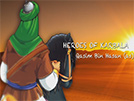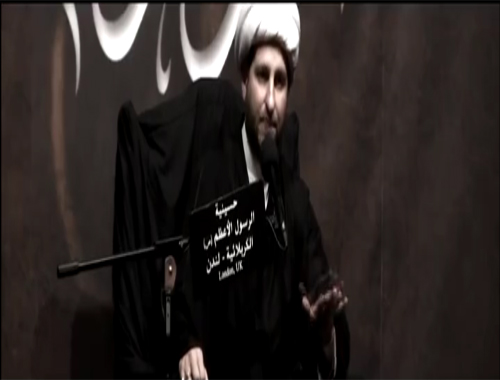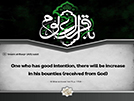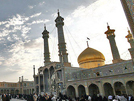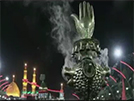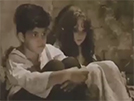Traditions on Ghiība
- Details
- Hits: 2594
Traditions on Ghiība
There are a large number of traditions that speak of Ghiība as a sin, which is promised divine punishment. We quote a tradition of Makasib where Shaykh Ansari has recorded a tradition of the Holy Prophet of Islam (S):
“GhiÄ«ba is worse than fornication because if a fornicator repents, Allah (S.w.T.) forgives him but He does not forgive the back-biter till the person about whom he has back-bited forgives.”
(Makasibe Muhrima Vol. 3 page 310)
One day the Messenger of Allah (S) describing the evil aspects of usury said that taking a Dirham as usury was worst than committing adultery thirty six times. Then he said that the worst kind usury is revealing the defects of a Muslim and insulting him.
(Makasibul Muharima)
In the light of the above traditions Ghiība is proved to be a greater sin also becMeaning and Occasions of Ghiība
The Messenger of Allah (S) explains Ghiība in the following words,
“GhiÄ«ba is remembering your brother in a way he dislikes.”
(Makasib Muhrima)
Imam Sadiq (a.s.) says,
“GhiÄ«ba is exposing that aspect of your brother which Allah had concealed.”
(Makasib, al-KÄfi Vol. 2 page 358)
Imam MÅ«sa Ibn Ja’far (a.s.) says,
“If one speaks of a person in his absence about those of his traits which are actually present in him and people are also aware of it, it is not GhiÄ«ba. But if he mentions something which is present in the person but people are unaware of it, it would be GhiÄ«ba. Moreover if what he is says is not present in the man, it is allegation (BukhtÄn).”
On the basis of these two traditions mentioning the defects of a person which are well-known to those who are being told and also other people is not GhiÄ«ba, even if it could be construed as criticism, scolding, causing hurt and insult, which is also HarÄm as will be discussed later.
After taking into account the meaning of word Ghiība by dictionary experts and the different implications of Ghiība according to traditional reports the Shaykh concludes that Ghiība is of Three types: Absolute Ghiība, Apparent Ghiība and Implied Ghiība.
In the first instance it is backbiting for sure. The defect be according to Shari’a or according to what is generally accepted as defect in a person and also that if it is mentioned in the absence of the person and were he to know about it he would not like it. Besides, one who indulges in this GhiÄ«ba should be doing it with the intention of exposing him or in trying to find defects in him. In short if one exposes the defect of a believer with a clear intention of defaming, it would be GhiÄ«ba.
In the second category is GhiÄ«ba which is not done for exposing a person but for some other purpose. For example in jest or to prove ones point, or for expressing ones concern, or to cite it as an example. In all such cases also if one is revealing the hidden defect of a believer it is GhiÄ«ba and HarÄm according to Shari’a.
The third kind is to mention the defects to a person who is already aware of it. Regarding this some traditions say it is not GhiÄ«ba but other traditions have included it among backbiting, particularly when the person is scolding with vehemence and insult. Such a GhiÄ«ba is absolutely HarÄm even though it is doubtful whether it is GhiÄ«ba in the real sense, since this will cause grief to a believer and humiliation. Also if a person uses nicknames that will invite criticism, saying: he is a son of a Jew, or ‘His mother was of loose character’. All such things are HarÄm as mentioned in the verse of Surah al-HujurÄt.
“…nor call one another by nicknames; evil is a bad name after faith…”
(Surah al-HujurÄt 49: 11)
ause it is worse than Adultery and Usury and we have already proved in the earlier chapters that Adultery and Usury are greater sins. The Holy Prophet (S) also said,
“Allah will not keep a person who reveals the fault of a Mu’min, along with him in Paradise, and if he accuses him of faults the Mu’min does not have, the pure relationship of their faith will be destroyed and the back biter will forever dwell in Hell, which is a dreadful place.”
(Makasibul Muharima)
The below tradition is sufficient for a person with insight.
“One who thinks that he is legitimately born is wrong, because by doing GhiÄ«ba of people he is consuming their flesh. Beware of GhiÄ«ba because it is the diet of the dogs of Hell.”
(Makasibul Muharima)
“One who moves from his place with the intention of back-biting about his brother in faith, you should know that he has taken the first step towards Hell.”
(Makasibul Muharima)
“Even if the back-biter repents he will be the last to enter Paradise, and one who dies without repenting will be first in Hell.”
(Makasibul Muharima)
The Second Martyr (Shahīd al-Thani) narrates from Imam Sadiq (a.s.) and the Messenger of Allah (S) that the thing nearest to infidelity is that a person listens to a word from a person and remembers it for using it later to insult him by telling it to others. Such people can never make a gain in the hereafter.
(Kashful Rabi of Shahīd al-Thani)
The Messenger of Allah (S) says,
“GhiÄ«ba affects the religion of a person faster than leprosy spreads in human body.”
(al-KÄfi Vol. 2 page 357)
Imam Ja’far as-Sadiq (a.s.) says,
“GhiÄ«ba is HarÄm for all Muslims and there is no doubt that GhiÄ«ba destroys good deeds like fire destroys wood.”
(al-KÄfi)
The Shaykh says, “GhiÄ«ba eats good deeds”, means that GhiÄ«ba invalidates all the good actions that one has performed or that the sin of GhiÄ«ba exceeds the rewards he has accumulated from the past good deeds, or that the deeds of back-biter are transferred to the scroll of deeds of the one about whom he has back-bited. These points are mentioned in a number of traditions. The Messenger of Allah (S) is reported saying that a person will be brought for accounting in QiyÄma and handed his scroll of deeds. When he sees the good deeds performed by him missing from his record he would say, ‘O Allah! This is not my record because I cannot find the good deeds performed by me in it.’ He will be told, ‘Your Lord does not err or forget, your good deeds have disappeared due to backbiting about the people.’ Then another person will be brought and given his record of deeds. When he finds therein good deeds that he had never performed he shall say, ‘O Allah! This is not my scroll of deeds. Because I find recorded therein such good deeds as I had never performed’. So he shall be informed, “These are the good deeds of that certain person who back-bited about you and as a recompense his good deeds have been given to you.”
The Shaykh concludes that Ghiība is indeed a greater sin, and in fact it is more serious than some greater sins like Adultery and Usury.
Moreover, Khayanat discussed in the earlier chapters is confirmed to be a greater sin, and Ghiība can be considered a form of Khayanat; which Khayanat can surpass the action of betraying the confidential things of a believing brother? One proceeds to gobble the flesh of ones brother in faith while the latter is completely unaware.
Please take note, that GhiÄ«ba is HarÄm only in the case of believers. That is, the believers in all the tenets of faith the foremost of which is the belief in the Imamat of the twelve Imams (a.s.). Therefore, GhiÄ«ba of those who opposes this belief is not HarÄm.
However by way of precaution, we must not backbite any person belonging to any of the sects of Islam. Especially those who are not the enemies of truth and are just deficient in knowledge. We should also know that GhiÄ«ba is HarÄm not only when told to adults, it is not permitted to speak words of back biting even to a child who is old enough to understand them and be affected by them. Some scholars have stated that GhiÄ«ba is not allowed even to children who have not yet reached the age of understanding.



